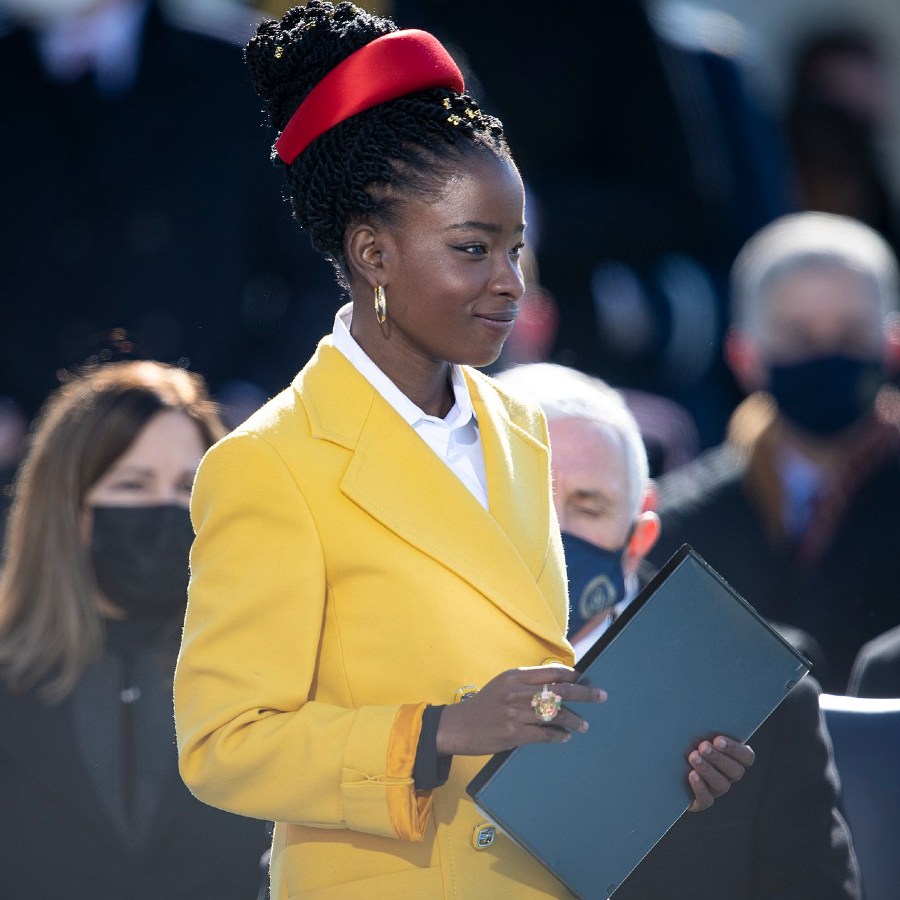The intersection of literature and activism is vividly illustrated through the lives and legacies of Amanda Gorman and Dr. Martin Luther King Jr. Both figures epitomize the pursuit of justice and equality, channeling their artistic and rhetorical talents toward the upliftment of marginalized communities. Yet, beneath the surface of their celebrated personas lies a deeper philosophical underpinning, one that aligns with the Bahá’í teachings on unity, justice, and social progress.
Gorman, a young poet laureate, emerged as a resonant voice in contemporary America, particularly in the wake of social upheavals and the quest for racial equity. Her poem, recited at the inauguration of President Biden, encapsulated the essence of optimism combined with a relentless call to action. Gorman’s invocation of themes such as hope, resilience, and the collective spirit of humanity mirrors the Bahá’í principle of oneness—an overarching belief that humanity functions as a single entity within a global civilization.
Dr. Martin Luther King Jr., a titan of the civil rights movement, similarly articulated a vision of equality that transcended racial and ethnic boundaries. His advocacy for nonviolent resistance drew upon deep spiritual convictions and ethical imperatives that resonate profoundly within the Bahá’í Faith. Both figures, Gorman and King, underscore a universal truth: that the pursuit of justice is not merely a personal endeavor but a collective responsibility that calls for a unified front against oppression.
In exploring the thematic elements of Gorman’s work juxtaposed with King’s teachings, we can identify crucial principles that enrich our understanding of their respective contributions to social justice discourse. One prominent observation is their shared eloquence in expressing the inherent dignity of individuals and communities. Gorman’s statements are laden with imagery that invokes the pain and triumph of marginalized populations, serving as an artistic vessel to communicate the fullness of human experience. This capacity to evoke empathy aligns with the Bahá’í teaching that emphasizes the inherent nobility of every human being, urging believers to recognize the sanctity of the individual soul.
Moreover, Gorman and King both champion the notion of perseverance in the face of adversity. Gorman’s lines propel the audience forward toward a vision of hope, urging determination in achieving justice. King’s assertion that “the arc of the moral universe is long, but it bends toward justice” encapsulates a similar sentiment. Both convey an understanding that meaningful change often requires patience and sustained effort. This idea resonates deeply with the Bahá’í approach, which advocates for gradual, systemic transformation rooted in education and collective action.
A noteworthy aspect of their combined messages is the importance of inclusivity. Gorman’s poetry often emphasizes the necessity of diverse voices in the dialogue surrounding social change. In her work, she highlights the experiences of those traditionally sidelined in mainstream narratives, advocating for a pluralistic society where differences are celebrated as a source of strength. This mirrors the Bahá’í ideal that diversity is a cornerstone of social harmony, where unity does not equate to uniformity, but instead embraces a tapestry woven from myriad threads of human expression.
Furthermore, both Gorman and King articulate a vision of a future wherein all individuals can coexist in peace and equity. This aspiration is not mere idealism; it is a clarion call for tangible policy changes and societal shifts. Gorman’s vivid imagery of climbing toward “true equality” serves as a metaphorical representation of the continuous effort required to surmount systemic barriers. Similarly, King’s advocacy for legislative reforms reflects his unwavering commitment to manifesting a just society. The Bahá’í teachings fortify this sentiment, positing that true peace and justice must be enshrined in the laws governing society. Just as King fought for civil rights legislation, the Bahá’í Faith calls for the establishment of governance structures that promote equity and justice for all.
Additionally, the transformative power of education emerges as a salient theme in the works of both activists. Gorman, through her words, signifies the role of knowledge as a catalyst for change. Her emphasis on literacy and education aligns with the Bahá’í principle that advocates for universal education as vital for personal and societal transformation. King’s focus on enlightening the public through nonviolent protest and civil disobedience emphasizes the necessity of awareness and education in fostering a just society. Both figures underscore that informed individuals are empowered to challenge injustice and instigate meaningful change.
Lastly, the spiritual dimension inherent in the teachings of both Gorman and King warrants attention. Their work transcends mere political activism; it is imbued with a profound moral framework. Gorman’s poetry often invokes spiritual imagery that speaks to a collective consciousness yearning for unity and peace. King’s deeply rooted belief in love as a transformative force resonates with the Bahá’í principle that love is the foundation of all human relationships—a divine edict encouraging individuals to act towards others with compassion and understanding.
In summary, the philosophies espoused by Amanda Gorman and Dr. Martin Luther King Jr. are emblematic of the universal longing for equality and justice. Their voices intertwine, crafting a narrative that not only calls for social reform but also elevates the discourse surrounding the inherent dignity of all humanity. As Bahá’í teachings advocate for the oneness of humanity, the principles articulated by Gorman and King reflect a collective consciousness that is irrevocably tied to the progression towards a more equitable world. Their legacies inspire a deeper examination of our societal values and beckon individuals and communities alike to actively participate in the noble pursuit of true equality.
